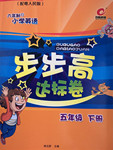题目内容
A rainforest is an area covered by tall trees with the total high rainfall spreading quite equally through the year and the temperature rarely dipping below 16 ℃. Rainforests have a great effect on the world environment because they can take in heat from the sun and adjust the climate. Without the forest cover, these areas would reflect more heat into the atmosphere, warming the rest of the world. Losing the rainforests may also influence wind and rainfall patterns, potentially causing certain natural disasters all over the world.
In the past hundred years, humans have begun destroying rainforests in search of three major resources(资源): land for crops, wood for paper and other products, land for raising farm animals. This action affects the environment as a whole. For example, a lot of carbon dioxide (二氧化碳) in the air comes from burning the rainforests. People obviously have a need for the resources we gain from cutting trees but we will suffer much more than we will benefit.
There are two main reasons for this. Firstly, when people cut down trees, generally they can only use the land for a year or two. Secondly, cutting large sections of rainforests may provide a good supply of wood right now, but in the long run it actually reduces the world’s wood supply.
Rainforests are often called the world’s drug store. More than 25% of the medicines we use today come from plants in rainforests. However, fewer than l% of rainforest plants have been examined for their medical value. It is extremely likely that our best chance to cure diseases lies somewhere in the world’s shrinking rainforests.
1.Rainforests can help to adjust the climate because they .
A. reflect more heat into the atmosphere
B. reduce the effect of heat from the sun on the earth
C. bring about high rainfall throughout the world
D. rarely cause the temperature to drop lower than 16 ℃
2.What does the word “this” underlined in the third paragraph refer to?
A. Humans have begun destroying rainforests.
B. People have a strong desire for resources.
C. We will lose much more than we can gain.
D. Much carbon dioxide comes from burning rainforests.
3.What might be the best title for the text?
A. Rainforests and the Environment
B. How to Save Rainforests
C. How to Protect Nature
D. Rainforests and Medical Development
 步步高达标卷系列答案
步步高达标卷系列答案
